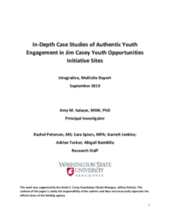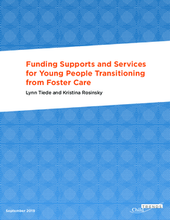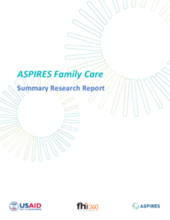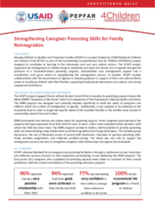Displaying 381 - 390 of 962
In this video, Sreyna and Chenda, two practitioners from Hagar Cambodia, discuss their learning regarding the impact of the care setting on child rehabilitation.
This video shares insights from Angkor Hospital for Children on how to conduct family tracing in the event abandonment has already occurred, including identifying leads and key sources of information.
In this video, Dy Noeut and Kim Malin of New Smile Organisation (NSO) discuss their experience of conducting family tracing as a part of reintegration efforts in the context of an unregistered orphanage where children’s files contained missing and inaccurate information.
In this two-part video series, Nou Dalin, part of the social work team with Cambodia Children's Trust (CCT), discusses her experience of working in partnership with the Department of Social Affairs, Veterans and Youth Rehabilitation (DoSVY) to implement the Ministry of Social Affairs, Veterans and Youth Rehabilitation (MoSVY) Action Plan on Improving Childcare in Battambang Province in Cambodia.
Comprised of 12 videos and accompanying discussion guides, this video series features the learning from practitioners working across a range of care-related programs and practices in Cambodia.
The purpose of this study is to synthesize and share the Jim Casey Youth Opportunities Initiative’s approach to youth engagement. The study’s findings communicate how authentically engaging youth can help both the Jim Casey Initiative and youth-serving systems achieve their desired results.
Set in Central Region Ghana, using Country-Side Children’s Welfare Home (CCWH) as the main case study, this thesis investigates the underlying factors that are preventing families in the Bawjiase and surroundings from opening their homes and hearts to vulnerable children.
This report draws on interviews the authors conducted with 19 child welfare leaders in eight jurisdictions to highlight how jurisdictions are using existing funding sources to serve this population and examine the funding challenges they continue to face.
The Accelerating Strategies for Practical Innovation and Research in Economic Strengthening (ASPIRES) Family Care Project focused on how economic strengthening (ES) interventions can help prevent unnecessary separation of children from families as well as support the reintegration into family care of children who were already separated. This mixed methods evaluation was implemented alongside programming that included longitudinal quantitative data collection with all participating FARE and ESFAM households at three time points to assess a range of indicators related to household economic and family well-being, as well as in-depth, longitudinal qualitative research to help understand how (well), from participants’ perspectives, the FARE and ESFAM interventions aligned with perceived drivers of separation and families’ experienced child-level effects of programming.
This Practitioner Brief from the the Coordinating Comprehensive Care for Children (4Children) project presents key learning and recommendations from the Keeping Children in Healthy and Protective Families (KCHPF) project in Uganda, which supported the reintegration of children living in residential care back into family care through the provision of a household-based parenting program, individualized case management support and a reunification cash grant aimed at strengthening the reintegration process.




